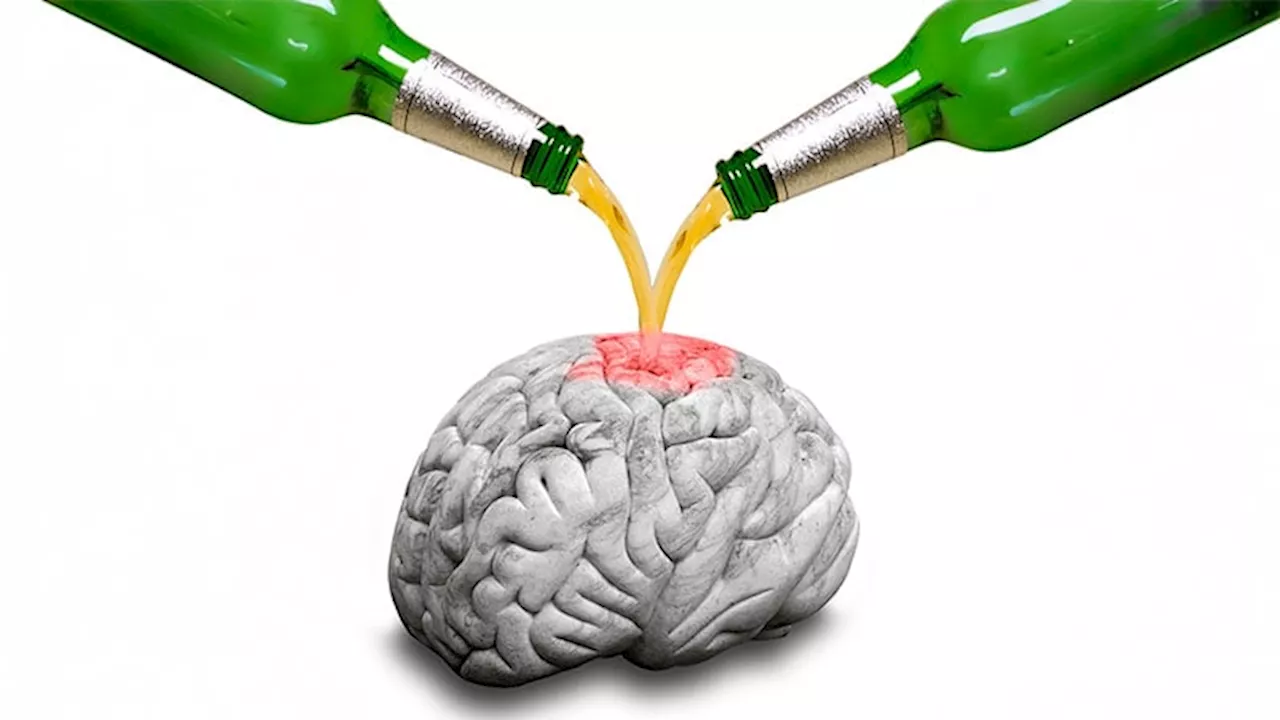A new study suggests that exercise can directly improve brain function by activating specialized cells involved in insulin response in the brain. Researchers found that physical activity increases the number of neuronal extracellular vesicles carrying proteins involved in insulin sensitivity, particularly Akt. This improvement in brain insulin sensitivity may help offset or even prevent dementia progression.
Scientists have shown that specialized cells involved in how the body responds to insulin are activated in the brain after exercise, suggesting that physical activity may directly improve brain function.
Extracellular vesicles, once dismissed by researchers as"cell dust," have in the past 15 years grown exponentially in recognition as important players in the microscopic world of the human body, facilitating transport of key molecules such as proteins between cells. For this study, the scientists targeted vesicles produced in the brain that ferry several proteins involved in insulin sensitivity -- one of which is called Akt.
"We showed for the first time that exercise impacts insulin signaling from neuronal extracellular vesicles in relation to clinical improvements in blood sugar," Malin said."And we use these neuronal extracellular vesicles as an indicator of brain insulin sensitivity." "If insulin is insufficient in the brain, that means not only will brain cells become potentially dysfunctional, but also they may fail to interact with each other properly," Malin said."It's like playing the game telephone with a friend. At some point the message gets lost when the brain becomes insulin resistant."
EXERCISE BRAIN FUNCTION INSULIN SENSITIVITY DEMENTIA NEURONAL VESICLES
United States Latest News, United States Headlines
Similar News:You can also read news stories similar to this one that we have collected from other news sources.
 Aerobic Exercise May Boost Brain Health in Older AdultsA new study suggests that aerobic exercise can increase biomarkers associated with learning and memory, potentially benefiting brain health in older adults, especially those at risk for Alzheimer's.
Aerobic Exercise May Boost Brain Health in Older AdultsA new study suggests that aerobic exercise can increase biomarkers associated with learning and memory, potentially benefiting brain health in older adults, especially those at risk for Alzheimer's.
Read more »
 This type of fat can actually improve exercise performance and longevity — what that means for agingStruggling to lose weight or maintain a healthy body weight? Scientists have discovered a way to turn your fat cells into calorie burners. Researchers from UC San Francisco investigated a protein called KLF15 and its role in regulating fat cells. The research team discovered how to switch off this protein in white fat cells.
This type of fat can actually improve exercise performance and longevity — what that means for agingStruggling to lose weight or maintain a healthy body weight? Scientists have discovered a way to turn your fat cells into calorie burners. Researchers from UC San Francisco investigated a protein called KLF15 and its role in regulating fat cells. The research team discovered how to switch off this protein in white fat cells.
Read more »
 Improve Your Fitness And Overall Health With These 4 Types Of ExerciseAs we age, maintaining a well-rounded fitness routine becomes increasingly important for our health and quality of life. This article outlines the four key types of exercise recommended by the National Institute on Aging (NIA) for optimal health: endurance, flexibility, balance, and strength. It provides specific exercises for each category that can be easily performed at home without any equipment.
Improve Your Fitness And Overall Health With These 4 Types Of ExerciseAs we age, maintaining a well-rounded fitness routine becomes increasingly important for our health and quality of life. This article outlines the four key types of exercise recommended by the National Institute on Aging (NIA) for optimal health: endurance, flexibility, balance, and strength. It provides specific exercises for each category that can be easily performed at home without any equipment.
Read more »
 Bacteria Found Thriving in Fish Brains, Raising Questions About Human MicrobiomeRecent research has provided compelling evidence that bacteria can exist in the brains of healthy vertebrates, specifically fish. This challenges the long-held belief that the brain is protected from outside microbial invasion by the blood-brain barrier. The study, published in Science Advances, found diverse communities of bacteria in the brains of salmon and trout, with some species showing adaptations to survive in brain tissue and cross the blood-brain barrier. While fish physiology differs from humans, this discovery raises intriguing possibilities about the existence of a human brain microbiome and its potential impact on neurobiology.
Bacteria Found Thriving in Fish Brains, Raising Questions About Human MicrobiomeRecent research has provided compelling evidence that bacteria can exist in the brains of healthy vertebrates, specifically fish. This challenges the long-held belief that the brain is protected from outside microbial invasion by the blood-brain barrier. The study, published in Science Advances, found diverse communities of bacteria in the brains of salmon and trout, with some species showing adaptations to survive in brain tissue and cross the blood-brain barrier. While fish physiology differs from humans, this discovery raises intriguing possibilities about the existence of a human brain microbiome and its potential impact on neurobiology.
Read more »
 Brain Activity in Teens May Predict Depression RiskA new study from the University of Calgary has found that adolescents who are at high risk for depression may have different brain activity patterns compared to those at lower risk. Researchers observed 145 teenagers and found that those with a muted response to winning during gambling-like games were more likely to experience a first depressive episode within 18 months.
Brain Activity in Teens May Predict Depression RiskA new study from the University of Calgary has found that adolescents who are at high risk for depression may have different brain activity patterns compared to those at lower risk. Researchers observed 145 teenagers and found that those with a muted response to winning during gambling-like games were more likely to experience a first depressive episode within 18 months.
Read more »
 Brain Structure May Predict Substance Use Risk in ChildrenA new study suggests that certain brain structures present in children before substance use may predict the likelihood of developing substance use disorders later in life.
Brain Structure May Predict Substance Use Risk in ChildrenA new study suggests that certain brain structures present in children before substance use may predict the likelihood of developing substance use disorders later in life.
Read more »
